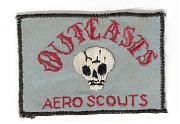After four years I have finally nailed down a thesis:
The Way Of War
A study of classical strategic theory focusing on Carl Von Clausewitz's, 'On War', and Mao Zedong's interpretation of 'Sun Tzu'. The thesis sets out to test the conceptual framework of what I will call 'the way of war' with specific reference to the contemporary applications of force, and understanding the often oscillating intensity of violence in war.













Bookmarks